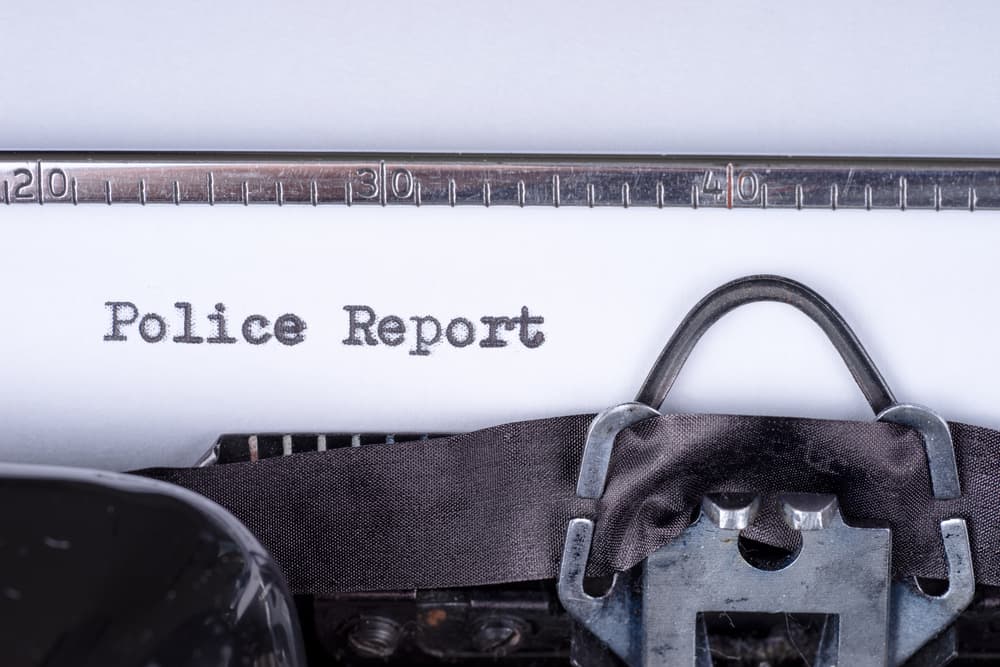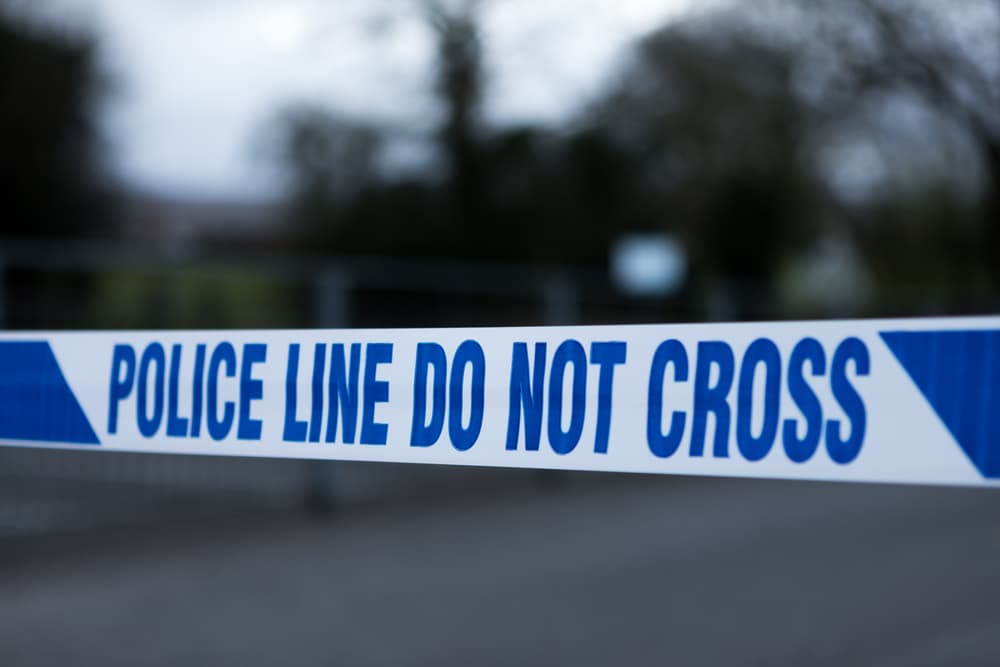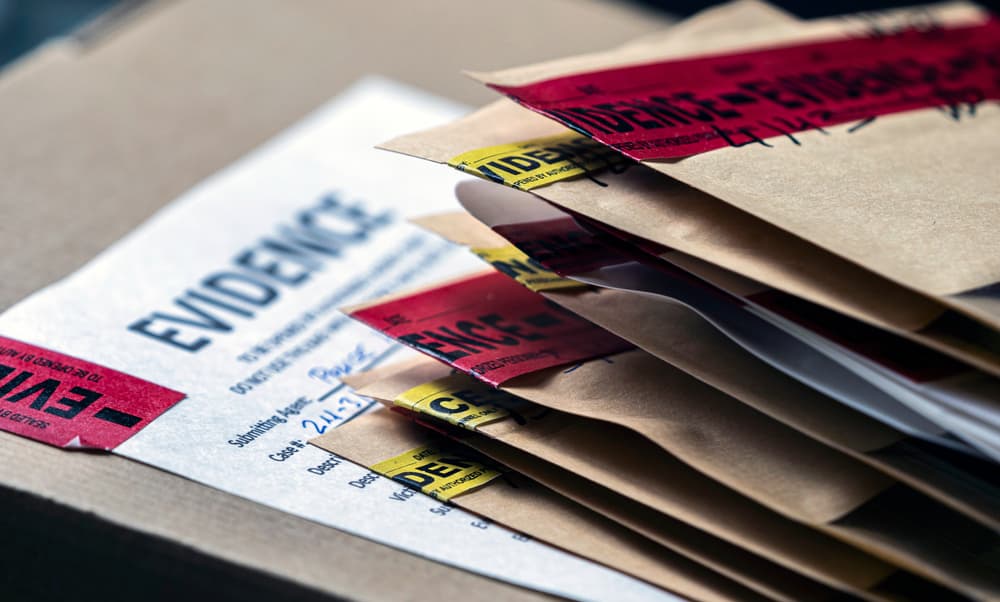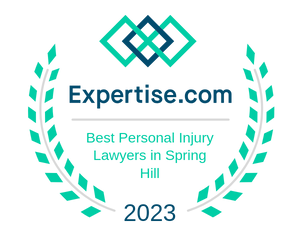A police report can strengthen your personal injury claim. After an accident or incident, this official document contains a comprehensive and unbiased account of what occurred. If you suffered an injury in an accident caused by someone else, a personal injury attorney can obtain this critical document.
Police reports are often key in personal injury cases because they provide detailed information about the incident. This information can significantly bolster your claim by establishing the facts and supporting your version of events.
A police report makes proving fault and securing fair compensation much easier.
The following is a look at the process of obtaining a police report, ensuring you have the essential documentation needed to support your personal injury claim.
Schedule a Free Initial Consultation Today!
What Makes the Police Report so Essential to Your Case?

A police report is an official document created by law enforcement officers after they respond to an incident such as a car accident, assault, or any situation requiring police intervention.
This report includes crucial details about the event, such as the date, time, location, involved parties, witness statements, and the officer's observations and conclusions.
In personal injury cases, the police report plays a pivotal role. First, it serves as a comprehensive and unbiased account of the incident, providing a factual basis your personal injury lawyer can reference throughout the legal process. This document establishes the circumstances surrounding the event and can corroborate your version of events, lending credibility to their case.
A Major Influence
You can’t overstate the influence of a police report on the outcome of a personal injury claim. Insurance companies and courts heavily rely on these reports to assess liability and determine the extent of damages.
For instance, if a police report indicates that an officer cited one party for a traffic violation leading to an accident, this can be critical evidence proving negligence.
In addition, a police report can impact settlement negotiations. Insurers are more likely to offer a fair settlement if the report clearly establishes fault and details the damages.
Without this crucial document, the injured party may face challenges in proving their case, potentially resulting in lower compensation or even denial of the claim.
Ensuring this report is accurate and comprehensive can help achieve a favorable outcome in a personal injury claim.
When and Why You Need a Police Report

Obtaining a police report is crucial in various situations, especially in personal injury cases. Some of the most common scenarios where a police report is essential include car accidents and slip and fall incidents. Each situation involves potential legal claims where the police report provides critical evidence.
A police report documents the circumstances of a car accident, including information about the drivers, vehicles, and witnesses. This report can help determine fault, as it includes the responding officer’s observations and any citations issued at the scene.
Similarly, in slip and fall incidents, especially those occurring on commercial properties, a police report can document the conditions leading to the fall and any immediate actions the property owner or manager took.
What the Police Report Contains
A typical police report contains vital information, including the incident's date, time, and location and detailed descriptions of what occurred. The reporting officer records witness statements, providing firsthand accounts that can corroborate or dispute the involved parties’ narratives.
The responding officer’s observations are also crucial, as they offer an expert perspective on the incident, including any contributing factors such as weather or signs of impairment. The report may also include diagrams of the scene, photographs, and any citations or arrests made at the time.
Steps to Obtain a Police Report
Following specific steps can successfully obtain a police report. While the process might differ for every police department or other agency, it typically includes:
Step 1: Determine the Jurisdiction
The first step in obtaining a police report is determining which law enforcement agency responded to the incident. This could be the county sheriff’s office, your local police department, the state highway patrol, or another specific agency like campus or transit police.
If you don’t know the jurisdiction, you can check the location where the incident occurred. Typically, a call to the non-emergency number of the local police department can provide you with the necessary information about which agency handled the report.
Step 2: Gather the Necessary Information
Before making your request, gather all pertinent information you’ll need. As stated earlier, this information includes the date and time of the incident, the location where it occurred, and the names of any involved parties.
Having the case number can expedite the process, as it directly references the specific report. If you don’t have the case number, these details should help the agency locate the report.
Step 3: Make the Request
You may request a police report in-person, online, by mail, or over the phone. Here’s a brief look at each.
- In-person: Visit the police department or agency’s records division. Fill out a request form and provide your identification.
- Online: Many agencies have an online portal where you can submit a request. Visit the agency’s website, locate the records request section, and follow the prompts to submit your request electronically.
- By mail: Write a request letter including all gathered information. Include your contact details and a photocopy of your ID, and mail it to the agency’s records division.
- By phone: Call the agency’s records division. They’ll guide you through the process and may direct you to use one of the other methods mentioned.
What to Do if You Have Problems
When obtaining a police report, you might face several common issues. These can include delays in processing, difficulty locating the report, or encountering missing or incomplete information. If the report lacks key details, contact the officer who filed it or the records division for clarification or an updated version.
How a Personal Injury Attorney Can Help

You have legal options if you still have problems or an agency refuses to release the report. For example, your personal injury lawyer could file a Freedom of Information Act (FOIA) request, as many police reports fall under public records. If the agency still denies your request, your attorney can seek an appeal through the agency’s FOIA appeals process.
Attorneys have the experience to communicate effectively with law enforcement agencies and can expedite the process. They can also bolster your personal injury claim by ensuring that agencies address missing or incomplete information.
By using their skill to your advantage, a personal injury lawyer can obtain the crucial documentation needed to support your case.
Reviewing the Police Report
Understanding and effectively reviewing a police report is crucial for your personal injury case. Here’s how your personal injury lawyer will read and interpret this essential document.
Carefully Read the Police Report
Your attorney will typically start by carefully reading the entire report to get a comprehensive view of the incident. They’ll pay close attention to the narrative section where the responding officer describes what happened, including their observations and any statements from involved parties and witnesses.
Identify Key Information Relevant to Your Case
Next, your personal injury lawyer will identify and highlight the key information most relevant to your case. This includes:
- The incident details: The exact date, time, and location of the incident.
- The parties involved: Names, contact information, and roles of everyone involved.
- Witnesses: Names and statements of witnesses that can support your version of events.
- The officer’s observations: The officer’s account of the scene, including any contributing factors like weather, traffic signs, or signs of impairment.
- Violations and citations: If the reporting officer issued a citation for a traffic violation at the accident scene, that could indicate the other driver was at fault.
- Diagrams and photos: Visual representations of the scene can provide valuable context.
What Your Personal Injury Attorney Will Do If They Find Errors or Discrepancies in the Report
If your personal injury lawyer discovers errors or discrepancies in the police report, address them promptly. They’ll usually start by contacting the officer who prepared the report.
Your attorney will politely explain the inaccuracies and provide any evidence or documentation that supports your corrections. If the officer agrees, they may amend the report or add a supplemental report.
If the officer cannot or will not make changes, your lawyer will work to dispute the inaccuracies and ensure that the report accurately reflects the incident.
You need accurate and thorough documentation for your personal injury claim, and correcting errors in the police report can significantly improve the outcome of your case.
How Your Attorney Will Use the Police Report in Your Case
A police report is a powerful tool in personal injury cases, and your attorney will strategically integrate it into your case to strengthen your claim. Here’s how:
Integrating the Police Report into Your Case Strategy
Again, the police report provides an unbiased, third-party account of the incident, making it a cornerstone of your case strategy. Your personal injury attorney will start by thoroughly reviewing the report to understand the details of the incident, including the sequence of events, the parties involved, and the responding officer’s observations.
This information helps your lawyer build a coherent narrative of the incident, establish liability, and identify potential witnesses who can support your version of events.
The report’s factual basis allows your attorney to construct a compelling argument that clearly demonstrates the other party’s fault and your resulting damages.
The Importance of Sharing the Report with Your Attorney
Sharing the police report with your personal injury lawyer as soon as possible is crucial. The report contains essential details that your attorney needs to understand the full scope of the incident and gather additional evidence. The sooner your attorney can access the police report, the better they can prepare your case for settlement negotiations or trial.
In addition, the report may contain time-sensitive information, such as witness contact details, that your attorney can use to conduct interviews and gather supporting statements. Promptly sharing the report ensures that your attorney can take immediate action to protect and strengthen your claim.
Using the Report in Negotiations and Court Proceedings

In negotiations, the police report is a critical piece of evidence to support your claim for compensation.
During discussions with insurance companies, your personal injury lawyer will use the report to demonstrate the other party’s liability and the extent of your damages.
The report’s objective nature can help counter any insurance company's attempts to downplay the incident or shift blame. By referencing the detailed observations and documented evidence in the report, your attorney can argue for a fair and just settlement.
It’s very doubtful that your case will go to court since about only about 5 percent of personal injury cases require a trial. However, if your case proceeds to trial, the police report will document important evidence needed during the trial, providing the judge and jury with a clear and factual account of the incident.
The report can support your testimony and that of any witnesses, strengthening your credibility. Your personal injury lawyer can also call the officer who prepared the report to testify, further reinforcing the information contained in the document. The consistency and detail provided by the police report can secure a favorable verdict.
Find Out More About How a Personal Injury Lawyer Can Help
If you have issues obtaining the police report, a personal injury attorney can help you get a copy. They’ll handle whatever complications arise so you can get the necessary documentation.
Even more importantly, however, your lawyer can protect your rights and help you get maximum compensation. Learn more by contacting one as soon as possible for your free consultation.









